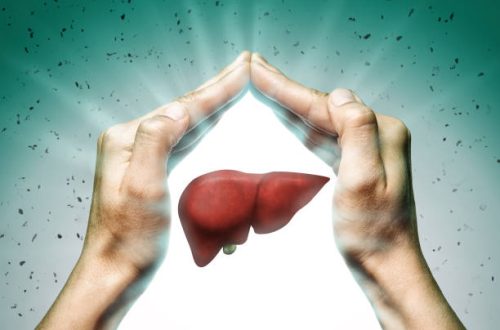Dopamine is a neurotransmitter that helps the brain process emotions, regulate movement, and induce pleasure. There is no way to measure precise dopamine levels, but a doctor can diagnose low dopamine levels based on symptoms, medical history, and lifestyle. Visit your doctor if you suspect you have a dopamine deficiency. Promote optimal dopamine levels by getting good sleep, exercising regularly, and ensuring you get enough magnesium.
Diagnosing a Dopamine Deficiency
1. Look for symptoms of low dopamine levels
Many symptoms of dopamine deficiency mirror those of clinical depression, although no verifiable links have been made between the two. You may experience intense emotions, especially sadness. Other symptoms may include:
- Mood swings
- Low motivation
- Irregular sleep patterns
- Fatigue
- Inability to concentrate
- Impulsive behavior
- Poor memory
- Dependence on caffeine, sugar, or other stimulants
- Weight gain
- Decreased motor skills
- Restless legs syndrome
- Tremors
- Parkinson’s disease
2. Consult your doctor if you suspect low dopamine levels
Your doctor will evaluate your symptoms, lifestyle, and medical history to determine if your dopamine levels are low. Inform your doctor about any recent physical or mental health issues you have experienced. This may include significant life changes, undue stress, or a traumatic event.
Your doctor may perform a test for Parkinson’s disease, which is associated with low dopamine levels, if you are experiencing tremors or other symptoms.
3. Tell your doctor if you use alcohol or drugs or have abused them in the past
Substance abuse can lead to a decrease in dopamine receptor levels and dopamine release in the body. Be honest with your doctor about any recreational substances you have taken or are currently taking and how often this occurs. A history of heavy drug use is a strong indicator of low dopamine levels.
Additionally, it has been shown that the damage caused by drug or alcohol abuse makes it difficult for individuals to experience the positive effects of dopamine in their bodies.
4. Describe your diet to your doctor
A diet rich in protein typically leads to higher dopamine levels. Conversely, frequent consumption of sugar and saturated fats can reduce dopamine in the body. Inform your doctor about what you eat on a typical day so they can assess what your dopamine levels might be.
Obesity has been linked to low dopamine levels.
Increasing Dopamine Levels
1. Limit your intake of sugar and alcohol
Sugar and alcohol can reduce dopamine levels. While you may feel good for a while after consuming them, your mood will quickly decline afterward.
If you want to completely eliminate sweets, you can take chromium picolinate supplements to help curb cravings. However, always discuss with your doctor before taking any supplements.
If you don’t want to give up completely, you can occasionally indulge in a dessert or eat very small portions. For example, you can satisfy your sweet tooth with a small piece of dark chocolate.
2. Engage in regular physical exercise to boost dopamine release in the brain
If you don’t enjoy intense workouts, start slowly with low-impact exercises like walking or yoga. Plan activities with friends or family that you will look forward to, such as a weekend trip, a soccer game, or a dance class. The more you exercise, the more dopamine your body will release, increasing your energy and motivation to work out.
Aim for at least 150 minutes of moderate exercise each week.
3. Sleep 7-8 hours a night to help your body produce dopamine
Your brain needs energy to recharge neurotransmitters, and lack of sleep can hinder this process. To ensure adequate dopamine levels, maintain a regular sleep schedule that allows for at least 7 hours of complete rest. Avoid sleeping more than 8 hours, as this can reduce dopamine levels.
4. Increase your magnesium intake
A magnesium deficiency in the body can lead to decreased dopamine levels. Ask your doctor if magnesium supplements are suitable for you or incorporate magnesium-rich foods into your diet, such as nuts, seeds, and leafy green vegetables. Eat these foods raw, as magnesium is depleted during cooking and processing.
Adults should receive about 400 to 600 mg of magnesium per day.
5. Eat foods rich in tyrosine to boost dopamine
Tyrosine is a substance that your body uses to synthesize dopamine. Eat bananas several times a week to obtain a high level of tyrosine. You can also consume foods rich in phenylalanine, an amino acid that your body converts into tyrosine.
Ripe bananas are the best source of nutrition for tyrosine.
Foods rich in phenylalanine include almonds, cherries, apples, watermelon, yogurt, eggs, and beans.
6. Reduce stress as much as possible to increase dopamine levels
Excessive stress is associated with dopamine deficiency. While you may not be able to avoid all stress, do your best to manage it to prevent its negative impact. You can reduce overall stress by:
- Exercising for at least 20-30 minutes a day.
- Practicing 10-15 minutes of meditation each day.
- Staying connected with friends and family in real life or through social media to avoid feelings of isolation.
- Listening to relaxing music.
- Laughing as much as possible by joking with friends or watching comedy shows.
7. Reduce caffeine intake
When you consume caffeine for the first time, you get a burst of energy. However, dopamine levels then begin to drop. Avoiding caffeine can help you stop this roller coaster effect.
If you enjoy the taste of coffee, drink decaf.
If you like tea, look for caffeine-free blends, such as mint.





